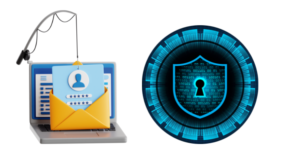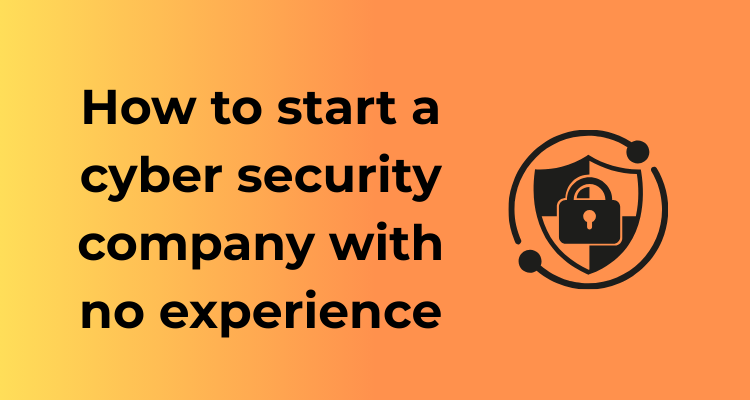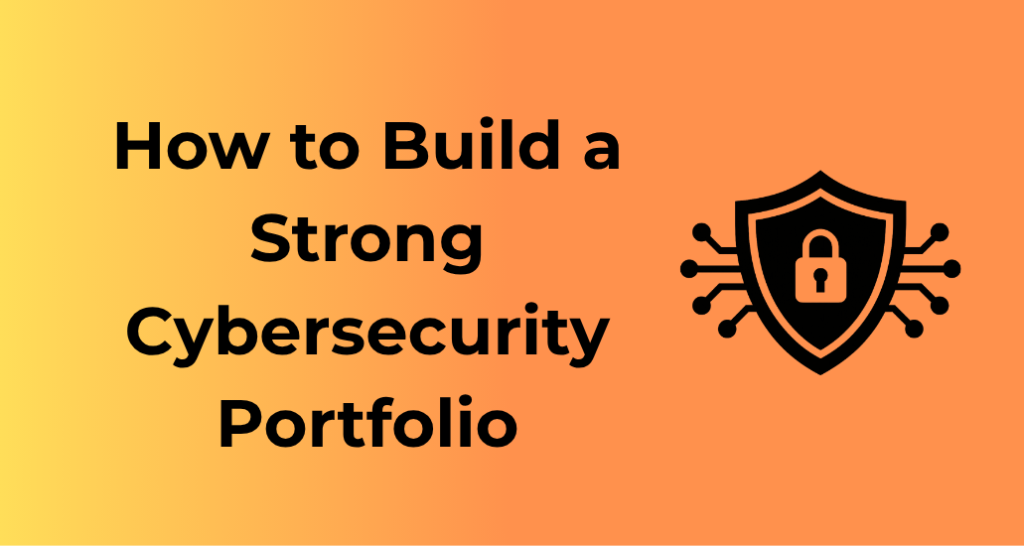`So, you’re thinking about diving into the world of cyber security? Awesome! It’s a fast-paced, ever-evolving field that plays a critical role in protecting data, systems, and networks in our increasingly digital world. However, before you leap into this fascinating domain, it’s crucial to first grasp what cyber security truly entails.
What is Cyber Security, Really?
At its core, cyber security is the practice of defending computer systems, networks, and data from malicious attacks, unauthorized access, and other digital threats. Think of it as a digital shield that safeguards everything from private information to critical national infrastructure.
But it’s not just about stopping hackers or deploying firewalls. It’s also about adopting a proactive mindset, understanding risks, and helping others create a robust framework to minimize vulnerabilities.
The Three Pillars of Cyber Security
To get the ball rolling, let’s break cyber security into three essential categories:
- People: Humans are often the first line of defense—and sometimes the weakest link. Training employees, end-users, or clients to recognize threats is a critical aspect of cyber security.
- Processes: Having the right protocols and strategies in place is key. This includes everything from incident response plans to secure communication channels.
- Technology: Tools like antivirus software, encryption, firewalls, and threat-detection systems supplement the work of individuals and processes to ward off vulnerabilities.
Why It’s Important to Understand Cyber Security First
Embarking on your cyber security journey without first understanding the basics is like trying to build a house without a solid foundation. You might get started, sure, but without the right base knowledge, everything could collapse under pressure. Here are a few reasons why it pays to educate yourself before diving in:
- Avoid being overwhelmed: Cyber security is a vast and complex field. Knowing the key concepts and frameworks will help you navigate it with confidence.
- Speak the language: Whether you’re discussing ransomware attacks or encryption protocols, you’ll need to communicate effectively with peers and potential clients.
- Set realistic goals: By understanding what cyber security entails, you can map out a clear direction for your career or business ambitions.
Resources to Get Started
Luckily, there are ample resources available to help you get a solid grounding in cyber security. Here are some easy steps:
- Online courses and certifications: Platforms like Coursera, YouTube, and CompTIA Security+ offer accessible entry points for beginners.
- Read industry blogs: Websites like Krebs on Security, Dark Reading, and Threatpost can help you stay updated on the latest trends and threats.
- Join communities: Engage with forums, attend webinars, or follow cyber security professionals on LinkedIn.
Identifying Your Niche Within the Cyber Security Landscape
Let’s talk about one of the most essential steps in your journey into the cyber security world: finding your niche. With so many pathways, specializations, and roles, it can feel a bit like being a kid in a candy store—exciting yet overwhelming. Picking a niche is where you carve out your role and make your unique mark in this dynamic field. Don’t worry if you’re unsure; I’m here to guide you through it!

What is a Cyber Security Niche?
In simple terms, a cyber security niche is your area of expertise or the specific problem you aim to solve in the larger landscape. Cyber security is incredibly varied, encompassing everything from ethical hacking to compliance, forensics to secure coding, risk management, and more. Each niche caters to different skill sets, interests, and client needs.
Focusing on a particular niche helps you create a targeted skill set, refine your services, and stand out in a competitive market.
How Do You Choose the Right Niche?
Great question! Picking a niche is much more than spinning a wheel and landing on one—it’s about matching your skills, passions, and market demand. Here are a few tips to help you decide:
- Assess Your Strengths: Think about the skills you already have. Are you a natural problem solver? Do you enjoy designing processes, writing reports, or diving into code? Identifying your strengths will help steer you in the right direction.
- Explore Market Trends: Cyber threats are constantly evolving, and so are the demands in the field. Look into what problems companies are trying to solve right now. For example, there’s growing interest in areas like cloud security, ransomware prevention, and IoT security.
- Consider Your Interests: Let’s face it: you’ll be spending a lot of time in your chosen niche, so make sure it’s something you truly enjoy. Passion fuels success—if you’re enthusiastic about your work, it’ll shine through in your results.
- Experiment: Sometimes, the best way to find your niche is to try different things. Volunteer for projects, take online courses, or work on personal challenges to figure out what excites you most about the field.
Popular Cyber Security Niches
To inspire you, here’s a quick breakdown of some popular cyber security niches to consider. Don’t worry; there’s room for everyone!
- Penetration Testing: Love the idea of breaking into systems (ethically)? Pen testing involves finding vulnerabilities before attackers do.
- Network Security: Protecting networks is a great option if you enjoy managing firewalls, intrusion detection, and keeping systems airtight.
- Cloud Security: The shift to the cloud means there’s always demand for experts who can safeguard cloud environments from breaches.
- Incident Response: If you thrive under pressure, helping companies deal with and recover from cyber attacks might be your jam.
- Security Audits and Compliance: Helping organizations align with regulatory standards like GDPR or PCI DSS can be a rewarding specialty.
Building a Support System with Skilled Professionals
Building a cyber security business can be complex, but here’s a little secret: you don’t have to go at it alone. Surrounding yourself with skilled professionals and building a robust support system is an essential ingredient for success. Besides, let’s face it—cyber security is all about collaboration and teamwork.
Why is a Support System Important?
In the cyber security industry, the challenges you face are dynamic and constantly evolving. Attack vectors change, vulnerabilities pop up unexpectedly, and every organization has unique needs. Having a skilled team and a reliable network of professionals means you’ll never have to face these challenges solo. There’s power in numbers, and every voice in a skilled support system adds value and strength to your business.
Who Should Be in Your Support System?
Great question! Here’s a breakdown of the types of individuals to consider as critical parts of your cyber security support network:
- Experienced Practitioners: These are folks with deep industry knowledge and practical, hands-on skills. They might be seasoned penetration testers, ethical hackers, or vulnerability assessment experts. They can guide you and help troubleshoot big technical challenges.
- Legal and Compliance Experts: Cyber security doesn’t just involve technology—it touches on privacy laws, regulations, and compliance frameworks. Building connections with or hiring legal experts can help you confidently navigate the tricky terrain of compliance requirements.
- Mentors: Sometimes, you want someone who’s “been there, done that.” Finding an experienced mentor in the industry can provide you with invaluable insights into what works, what doesn’t, and how to avoid common pitfalls.
- Business Professionals: Running a cyber security business is, at its core, still running a business. A trusted advisor with expertise in business strategy, finance, or management can help you make sound decisions when it comes to growth and sustainability.
- Peers and Collaborators: Don’t underestimate the importance of building relationships with peers in the industry. Whether through forums, conferences, or local meetups, other cyber security practitioners can become an integral part of your support network.
Simple Ways to Build Your Network
If you’re wondering how to find skilled professionals or create these support connections, don’t worry—it’s simpler than it seems:
- Join Professional Organizations: Groups like (ISC)², ISACA, or your local cyber security organizations host great events and provide networking opportunities for meeting professionals.
- Engage on LinkedIn: Social media platforms like LinkedIn are treasure troves for connecting with professionals. Share your expertise, comment on posts, and reach out to people in the cyber security space.
- Attend Industry Events: Conferences, webinars, and meetups (whether virtual or in-person) allow you to meet experts and learn new trends in the field.
- Collaborate on Projects: Working with others on cyber security projects, even if it’s volunteering for a cause, builds trust and expands your connections organically.
Providing Value to Your Network
Remember, building a support system isn’t just about taking—it’s also about giving. Offer your own skills and knowledge to others in your network; this creates mutual respect and long-lasting professional relationships. Whether that means recommending tools, sharing resources, or helping on a tough project, your efforts will come full circle.
Learning the Legal Basics and Compliance Requirements
Starting a cyber security company is an exciting venture, but let’s not put the cart before the horse! Before diving into defending against cyber villains and saving organizations from data breaches, let’s talk about something equally important (though less adrenaline-pumping): legal basics and compliance requirements.
Staying on the right side of the law is essential. Cyber security, like all industries, has its own maze of legal jargon, regulations, and obligations. Don’t worry—it’s not as overwhelming as it sounds, especially when broken down into bite-sized pieces. Let’s dive in!
1. Understand the Regulatory Environment
The first step is getting familiar with the specific regulations in your intended industry and location. Cyber security isn’t a “one-size-fits-all” field. The legal requirements you need to follow will vary depending on the sector you serve and the nation you operate in.
- GDPR (General Data Protection Regulation): If you’re operating in or serving clients from Europe, you need to know GDPR inside out. This regulation focuses on protecting user data and enforcing strict guidelines on data breaches.
- HIPAA (Health Insurance Portability and Accountability Act): Planning to work with healthcare organizations? Understanding HIPAA is critical. It outlines rules for protecting sensitive patient information.
- PCI DSS (Payment Card Industry Data Security Standard): Serving businesses in retail or e-commerce? You’ll need to meet these standards for secure cardholder data transactions.
- Local Data Protection Laws: Different countries and states often have unique requirements. Be sure to research the ones that apply to your jurisdiction.
Tip: Build a repository of your industry’s key regulations and refer to resources from trusted sources such as government websites or industry organizations. This way, you’ll always have the latest information at your fingertips.
2. Partner With a Legal Expert
You don’t have to figure this all out alone. A legal expert specializing in cyber security or data protection can be your new best friend. They’ll help you interpret the finer points of the law, ensure your policies align with regulations, and save you from potential headaches down the road.
Seriously, this is a worthwhile investment—it could prevent costly fines or lawsuits!
3. Build Ironclad Contracts
Good contracts make for good business. Every agreement you make with clients should include clear terms outlining responsibilities, confidentiality, and liability. A few tips to keep in mind:
- Define what your company will do—and more importantly, what it won’t do.
- Clarify data ownership and storage policies.
- Include compliance clauses to ensure both parties uphold legal regulations.
Remember, a well-drafted contract is both a shield and a flashlight—it protects you and illuminates expectations for your clients.
4. Conduct Regular Compliance Audits
Compliance isn’t a “set it and forget it” kind of thing. Laws evolve, and so should your practices. Make it a habit to audit your processes regularly to ensure you remain compliant. This builds trust with clients, too!
5. Train Your Team
If you’re planning on building a team, ensure every member understands the basic legal and compliance rules. Arrange for regular training sessions to get everyone up to speed—it’s one of the best ways to avoid accidental oversights.
Starting Your Cyber Security Company with Minimal Resources
So, you’ve decided to embark on the journey of launching your own cyber security venture but feel intimidated by limited resources? Don’t worry—you’re not alone, and better yet, it’s absolutely possible! Here’s a practical and accessible guide to help you bootstrap your way to success with confidence.
Start with a Lean Mindset
You don’t need a sprawling office or state-of-the-art equipment to get started. In fact, many successful businesses start by leveraging what’s already available to them. Here’s how you can adopt a lean mindset:
- Work from home: As a cyber security expert, your work is inherently tied to the digital realm. Begin your operations from your home or a modest co-working space.
- Leverage free and open-source tools: Take advantage of industry-trusted tools like Wireshark, Metasploit, and Snort, which provide powerful capabilities without breaking the bank.
- Focus only on essentials: Avoid unnecessary expenditures, such as fancy branding or premium software subscriptions, until you know your revenue can support them.
Utilize Your Existing Skillset
When resources are limited, it’s time to put your expertise and creativity front and center. Focus on services or skills you excel in, whether it’s vulnerability assessments, penetration testing, or consultation services. By doing so, you can offer specialized solutions at a lower cost but with exceptional efficiency.
Pro Tip:
Target small businesses as clients—many of whom are in desperate need of cyber security but cannot afford large, established firms. Provide them with affordable, high-value solutions and grow together!
Network Like a Pro
No money to fund advertising? No problem! Networking is one of the most cost-effective ways to gain visibility for your fledgling business. Build relationships through:
- Social media platforms: Use LinkedIn to connect with decision-makers in various industries. Share insightful posts and join cyber security groups.
- Local events: Attend meetups or industry conferences to mingle with potential clients and collaborators.
- Online communities: Participate in forums like Reddit or specialized cyber security networks to showcase your knowledge and credibility.
Outsource and Automate
As a small operation, you can’t do it all—and that’s okay! Invest in delegation or automation for administrative or repetitive tasks. Platforms like Fiverr or Upwork allow you to find freelancers for tasks such as website design or marketing on a budget. For automation, consider tools like Zapier to streamline workflows.
Bootstrap Collaboration
Don’t hesitate to collaborate with like-minded professionals or companies. Form strategic partnerships with IT firms, compliance consultants, or managed service providers to grow your offerings without additional upfront investment.
Promoting and Marketing Your Services Without Overhead
Starting a cyber security company is just the first step; the real challenge lies in letting the world know about your amazing services—without spending a fortune. No worries, though! You don’t need a big marketing budget to make a big splash. With some creative thinking and strategic effort, you can master the art of promotion on a shoestring budget. Let’s dive in!

1. Embrace the Power of Social Media
If you’re not already active on platforms like LinkedIn, Twitter, and even YouTube, now’s the time to jump in. These platforms are free and can be powerful tools to showcase your expertise.
- LinkedIn: Share thought-provoking posts, join niche industry groups, and engage with your potential clients where they already network.
- Twitter: Stay active on relevant hashtags like #CyberSecurityTips and #InfoSec. Sharing bite-sized, actionable advice regularly will build your reputation as a go-to authority.
- YouTube: Consider creating quick tutorials or explaining common cyber threats in a beginner-friendly way. Video content can reach a broad audience and build trust.
Pro tip: Set aside just 30 minutes a day for engaging on these platforms. Small, consistent efforts go a long way.
2. Focus on Content Marketing
When it comes to marketing without spending a dime, content is king. Start a blog on your company website if you haven’t already. Write articles addressing current cyber threats, offering solutions, or demystifying technical concepts for non-technical users.
- Write about current cybersecurity trends and news.
- Break down complex topics in layman’s terms to help businesses understand.
- Share cybersecurity “how-tos” to empower your audience.
Remember: Consistency and relevance are key. Over time, this positions you as an authoritative voice in your niche, attracting organic traffic—and clients—to your site.
3. Network Effectively
Networking does not necessarily mean attending costly conferences. You can build relationships right from your desk:
- Attend free webinars or virtual events in the cybersecurity field and engage in the Q&A sessions.
- Partner with complementary businesses for cross-promotions. For instance, team up with IT consulting firms that can recommend your services to their clients.
- Reach out to local small businesses. Many might not even realize they need cybersecurity help. A friendly introduction and offering free initial consultations can go a long way.
4. Build Trust Through Reviews and Testimonials
One surefire way to promote your services is by leveraging happy clients. Ask your existing customers for testimonials or encourage them to leave reviews on platforms like Google or Yelp. Word-of-mouth promotion is incredibly powerful, especially in the cybersecurity industry, where trust is paramount.
5. Offer Freebies to Hook Potential Clients
“Free” is a magical word. Consider creating free resources that speak directly to your target audience’s needs.
- Create a downloadable PDF like “Top 10 Cybersecurity Practices Every Small Business Needs.”
- Host a free, 30-minute webinar on guarding against cyber threats.
- Offer a no-obligation security audit to small businesses or charities to showcase your expertise.
These giveaways not only demonstrate your value but also keep your name top-of-mind when your audience needs paid services down the line.
6. Use Email Marketing Wisely
If you’ve captured some email addresses from those free resources or webinars, create a simple monthly newsletter. Share tips, trends, and insights that keep recipients engaged with your brand. Just remember: Nobody likes spam, so ensure you’re sending value-packed emails and not overly promotional content.
Continuous Upskilling and Staying Ahead of Threats
So, you’ve set up your cyber security company, landed your first clients, and started navigating the ever-evolving digital world. Guess what? The journey doesn’t stop there—it’s only just begun! The cyber security landscape moves at the speed of light, and to remain effective (and profitable), you need to make continuous learning your mantra. But don’t worry! Upskilling doesn’t have to feel like an uphill climb. Here’s how to stay ahead of threats while keeping things exciting and manageable.
Why Continuous Upskilling is Non-Negotiable
The cyber security industry is like a game of chess—except you’re always playing against evolving AI-powered hackers, malicious insiders, and constantly changing technologies. To remain a step ahead, you must know the newest moves on the board. Attackers are getting smarter, vulnerabilities are shifting, and new tools are entering the arena every day.
Staying stagnant isn’t an option. Upskilling keeps you sharp, allows you to offer cutting-edge solutions to clients, and maintains your reputation as a credible cyber security provider. Plus, it helps your team (and yourself) feel prepared to tackle modern challenges instead of scrambling to keep up.
Fun (and Effective) Ways to Upskill
Upskilling doesn’t have to feel burdensome. Here’s how you can make it an engaging part of your routine:
- Take Online Courses: Platforms like Coursera, Udemy, and Pluralsight offer a buffet of cyber security topics ranging from ethical hacking to machine learning in security. Some courses are free, and many come with industry-recognized certifications.
- Join Communities: Network with the tech pros! Cyber security forums (like Reddit’s r/cybersecurity) and professional groups on LinkedIn allow you to share knowledge and trade insights with like-minded peers.
- Attend Webinars and Conferences: Think of these like mini field trips. Events like Black Hat, DEF CON, and vendor-hosted webinars showcase cutting-edge innovations and provide opportunities to learn directly from industry titans.
- Read Blogs and Follow Trends: Websites like KrebsOnSecurity and SecurityWeek are treasure troves of timely updates and in-depth analysis. You can also follow thought leaders or popular hashtags like #CyberSecurity on social media platforms to keep your feeds fresh and informative.
- Practice with Simulated Environments: Platforms like Hack The Box or TryHackMe let you put theory into practice by exploring real-world scenarios in a risk-free zone. These virtual “labs” can be both fun and invaluable for sharpening your skills.
Navigating Threats Like a Pro
Aside from upskilling, you need to actively monitor and anticipate new threats. Here’s how:
- Set Up Alerts: Subscribe to alerts from the Cybersecurity and Infrastructure Security Agency (CISA) or other relevant sources for immediate updates on zero-days, vulnerabilities, and potential threats.
- Audit Your Processes Regularly: Conduct frequent assessments of your systems and procedures. What worked six months ago might not be relevant today!
- Embrace AI and Automation: Leverage tools that use AI to detect anomalies and predict threats. Automation reduces the strain on your team by handling repetitive tasks, allowing you to focus on innovation.
- Learn From Mistakes: If you or a peer encounters a security incident, take the time to study it. Where did the system fail? What could you do to mitigate a similar occurrence?









